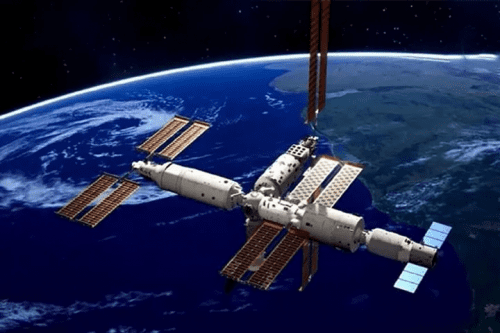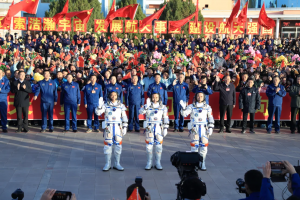China launches its youngest-ever crew to Tiangong space station
中国向太空输送有史以来最年轻的宇航员团队
When China’s first astronaut Yang Liwei blasted off into space in 2003, it was a history making moment that declared his country’s arrival as an emerging space power.
当2003年中国的第一位宇航员杨利伟踏入太空,那一刹那成为了历史的印记,标志着中国崭露头角,成为了新兴的太空强国。

Two decades on, China has become a major presence in space – a status that mirrors its growing economic, political and military ascendency on Earth. It now has its own permanent outpost in orbit – a fully operational space station – and routinely rotates crews to live and work there.
二十年过去,中国已不仅仅是太空中的新星,它的存在反映了在全球舞台上,中国在经济、政治和军事领域的持续崛起。如今,中国已有自己的永久空间站,其中工作的宇航员像地球上的居民一样,定期轮替、生活和劳作。
On Thursday, three Chinese astronauts lifted off on the Shenzhou-17 spacecraft from the Jiuquan Satellite Launch Center deep in the Gobi Desert, heading for the Tiangong space station for a six-month stay.
最近的一个周四,三名年轻的中国宇航员搭乘神舟-17号飞船,从位于戈壁沙漠深处的酒泉卫星发射中心出发,他们的目的地是天宫空间站,计划在那里待上半年。

They are the youngest crew China has ever sent to space – with an average age of 38. Among their tasks on board is to repair the solar panels that were damaged by space debris – the first time Chinese astronauts will carry out repair work outside the station.
这三人不同于以往,他们是迄今为止中国送入太空的最年轻的宇航员团队,平均年仅38岁。而他们此行的一项重要任务,是要修复因太空碎片损伤的太阳能电池板——这将是中国宇航员首次在空间站外部进行的维修活动。








